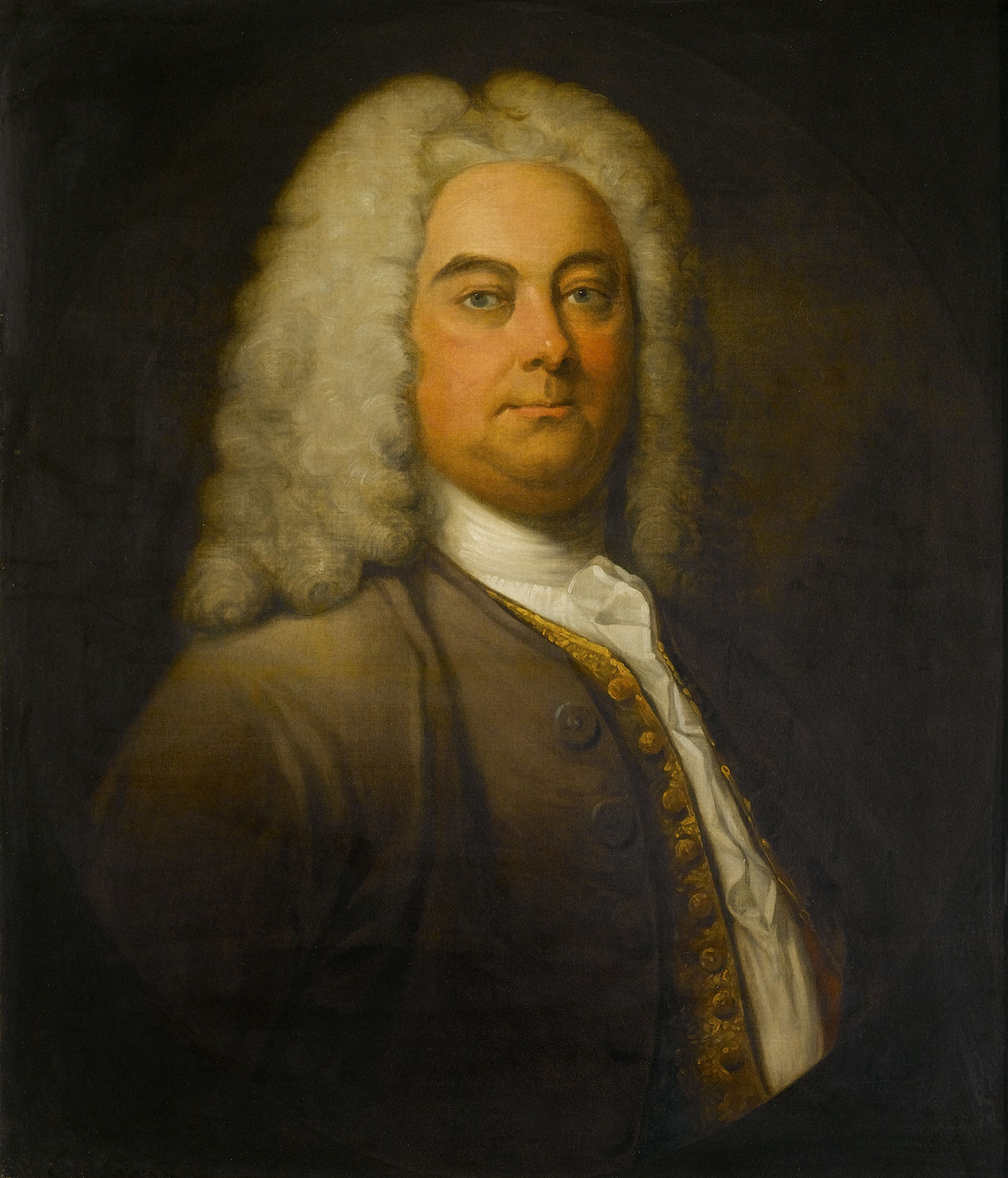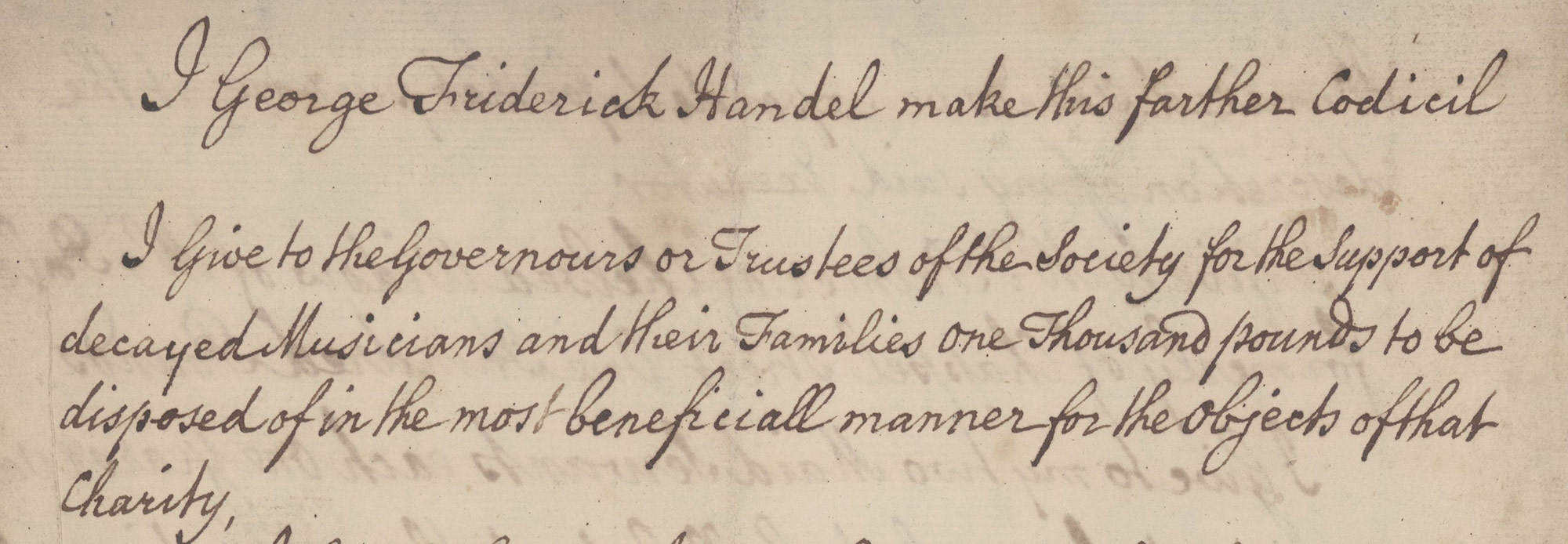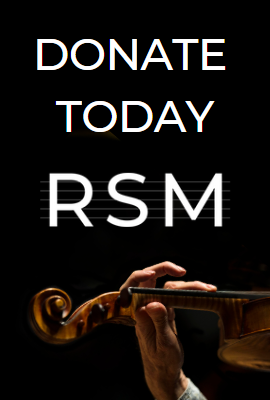Archive Item of the Month – May 2020
George Frideric Handel (1685-1759) and musicians in time of hardship or misfortune
Half-length portrait from the circle of William Hogarth (1697-1764): mid eighteenth century.
Handel first came to Britain in the autumn of 1710 and in his first season, he presented the London audience with its first taste of a completely Italian opera. Up until then, audiences had only experienced pasticcio productions of stage works, many only with English text. He returned to London in early 1713, having been in Hanover since 1711, and lost his job at the Hanover court in June of 1713. London was to become his home from then on and in 1727 he became a naturalized British citizen.
As a musician, businessman, and as a human, Handel experienced the vast array of life’s ups and downs. His life and work included successes and failures, happiness and illness, and the many emotions and responsibilities associated with working with colleagues. When the Fund for Decay’d Musicians was set up in 1738, Handel was one of the initial 228 musicians to join the Society. His name appears on the founding Declaration of Trust and we can see the importance of his status in general society by the addition of the epithet Esquire which elevated his prominence above “Mr” but without the presumption of an aristocratic status.
Handel must have been held in high esteem not only by Members of the Society but by the general public. The composer’s prestige and character enabled him to promote the first concert in aid of the Society, held at the King’s Theatre in Haymarket on 20 March 1739, within a year of the founding of the Society. Handel paid for the use of the theatre for the Society’s concert as well as offering his services at no cost. As with all “new music” of the eighteenth-century, it was necessary for audiences to enjoy live performances and contribute to any ongoing popularity of compositions. Handel included his recent work, the oratorio Alexander’s Feast in this first fundraising programme, as well as providing a new concerto for the occasion. He was involved in many of the future fundraising concerts for the Society, either as a performer or as a composer.
Later in life, Handel had suffered failing eyesight as well as some kind of stroke. His Will (testament) reveals the extent to which he thought about the many people in his life; his opening paragraph gives money and effects to his “servant” and reminds us that there are many people in everyone’s lives who make real and quantifiable differences to our existence and happiness. In the final codicil, Handel opens with a bequest to the Society: “I give to the Governors or Trustees of the Society for the Support of decayed Musicians and their Families One Thousand Pounds to be disposed of in the most beneficial manner for the objects of that Charity”.
“Image courtesy and © of The Gerald Coke Handel Foundation”
This codicil was witnessed by John Christopher Smith (1712-1795), Handel’s secretary and a Member of the Society. Just three days later Handel died. His bequest was transferred to the Society by his executors and was the largest donation or bequest to the Society’s funds during the eighteenth century and was a most generous charitable benefaction.
Further literature:
- Handel’s Will: facsimiles and commentary. Edited by Donald Burrows. (London: The Gerald Coke Handel Foundation, 2008).
- Handel the Philanthropist. (London: The Foundling Museum, 2009).







